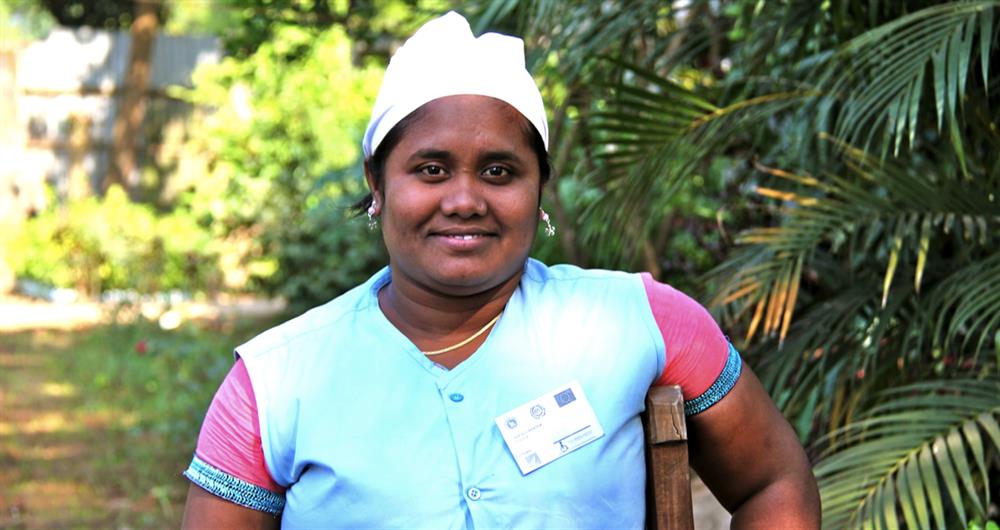A target and a push for inclusive skills training and employment
- Solution
- National Skills Development Policy (NSDP) of 2011, DTE Departmental Policy of 2015 and innovative practices Department of Technical Education, Ministry of Education, Bangladesh & International Labour Organization (ILO)
- Organization
- ILO Bangladesh
- Country of Implementation
- Bangladesh
- Region
- Asia & Pacific
- Subregion
- South Asia
- Start Year
- 2011
- First published
- 31.01.2017
Solution details
People
“Bangladesh is showcased as the “gold standard”, in terms of breadth and depth of its skills work.” Independent evaluators of the ILO’s strategy and actions for skills development for jobs and growth, 2010-15
With support from ILO, the European Union and Canada, the Directorate of Technical Education has initiated a reform to promote an inclusive skills system. It includes a 5 per cent enrolment target for persons with disabilities, the training of technical and vocational education and training (TVET) staff in disability inclusion, developing pilot training, and engaging potential employers. In 2016, it resulted already in 328 enrolees and 60 trainees gaining employment.
Problems Targeted
Based on the National Skills Development Policy of 2011, which sets out a framework for improving skills training for all while also establishing an overall enrolment target of 5 per cent for persons with disabilities, Bangladesh and ILO’s work for inclusion in skills and employment focuses on the Directorate of Technical Education’s (DTE) innovative practices and its departmental policy of a 5 per cent admission quota for persons with disabilities. As of 2016, 140 vice-principals of TVET Institutes were trained in disability inclusion, DTE enrolled 328 students with disabilities, and 80 per cent of the 80 trained persons with disabilities got a job.
Solution, Innovation and Impact
Combining bottom-up & top-down DTE’s approach is top-down in terms of the 5 per cent admission quota and national guidelines, while at the same time being bottom-up in terms of introducing disability in the TVET institutes’ annual action plans, budgets, performance appraisal, and monitoring. Demand- and supply-focused It is key to work on both demand and supply: with employers so employment opportunities are accessible, and with trainers so persons with disabilities are skilled. Piloting effectiveness The approach is tested in government, private and NGO-run training institutes to demonstrate the benefits of disability inclusion and to learn lessons that may be disseminated among stakeholders.
Funding, Outlook and Transferability
The reform is a major outcome of the EU-funded project, and DTE is planning to disseminate their experience to 21 other ministries so these processes will be widely replicated. Further, the initiative’s success is likely to lead to disability inclusion in the programmes of other donors.
Media
Life Story

THE STORY OF SHUELY, SEWING MACHINE OPERATOR
“I am far away from my family, but I am now able to help them.”
Being the eldest daughter in my family, it made me frustrated that I could not help my family members when they faced problems. At first they did not support me moving to Dhaka, but I went there anyway because I knew I had to do something. Ever since I was a child people always tried to avoid me, and my relatives always treated me differently than others, and so I always felt like a burden. I was looking for job opportunities for three months in Dhaka, but was unable to find anything and so, with my savings spent, I headed back to Khulna. Shortly after returning, I received a call back from the Centre for the Rehabilitation of the Paralysed and I was straight back on a bus to Savar to enrol in a sewing machine operator’s course for underprivileged women and persons with disabilities. I have finished my apprenticeship and I am now a skilled worker with nationally-recognised qualifications. I am also a mentor to other young apprentices as they finish the same course that I graduated from. It is mainly thanks to the Bangladesh-ILO’s (International Labour Organization) technical and vocational education and training reform that I was trained and could secure employment. Now my father visits me monthly, and he can see first-hand that even with my disability I am doing work and earning money. And despite the fact that I am far away from my family, I am now able to help them. For instance, my younger sister is in class eight and I have told her already that I am going to bear her education costs. Families are not conscious about what they should do for their children if they have a disability; they underestimate their potential and they try to hide them from the rest of society. I have proved them wrong.
Related information
- Connections
- 2
-
Organization
- People